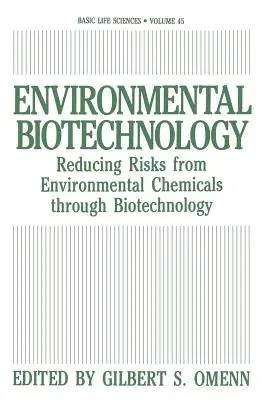Gilbert S Omenn
(Author)Environmental Biotechnology: Reducing Risks from Environmental Chemicals Through Biotechnology (Softcover Reprint of the Original 1st 1988)Paperback - Softcover Reprint of the Original 1st 1988, 16 June 2013

Qty
1
Turbo
Ships in 2 - 3 days
In Stock
Free Delivery
Cash on Delivery
15 Days
Free Returns
Secure Checkout
Part of Series
Basic Life Sciences
Print Length
506 pages
Language
English
Publisher
Springer
Date Published
16 Jun 2013
ISBN-10
1489908269
ISBN-13
9781489908261
Description
Product Details
Author:
Book Edition:
Softcover Reprint of the Original 1st 1988
Book Format:
Paperback
Country of Origin:
NL
Date Published:
16 June 2013
Dimensions:
23.39 x
15.6 x
2.67 cm
ISBN-10:
1489908269
ISBN-13:
9781489908261
Language:
English
Location:
New York, NY
Pages:
506
Publisher:
Series:
Weight:
721.21 gm

